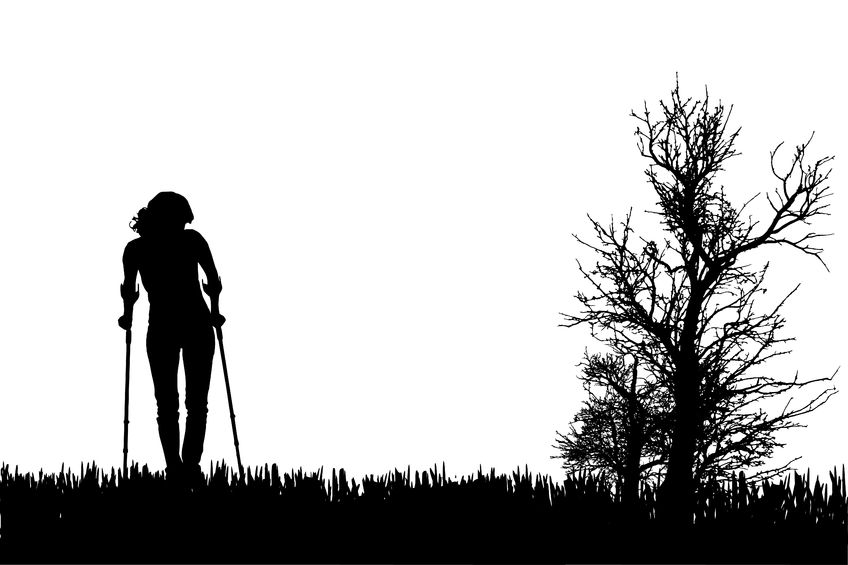
What does your crutch look like?
- A bottle of liquor
- An Internet site
- A pack of cigarettes
- A case of beer
- A trip to the mall
- A box of donuts
- A pot of coffee
- A bottle of pills
- A pack of cards
- A sharp blade
- A binge/purge session
- A one night stand
What do you think about when you first wake up? On your way home?
Do you think about how fast you can get your crutch because you can’t stand walking with this pain by yourself any longer?
We’re afraid to walk without our crutch because it will be too painful. And it is too painful, if we try to do it alone.
It’s better to walk with a painful limp with God’s help and be mentally, emotionally and spiritually healthy, than to walk without God using our crutch to numb the pain.
When we take our mind off ourselves, by helping others who are walking with the same painful limp that we have, we almost forget we need a crutch.
In time we grow stronger, our muscles learn new ways of walking and we aren’t in as much pain.
One day we will be pain free.
Image Credit: majivecka / 123RF Stock Photo
